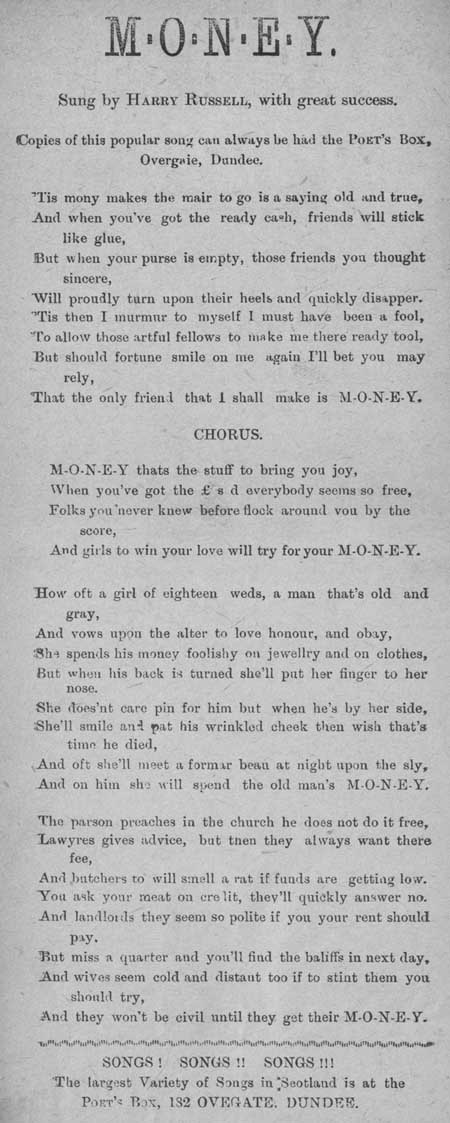
 |
| home | background | illustrations | distribution | highlights | search & browse | resources | contact us |
Broadside ballad entitled 'Money' |
CommentaryThis ballad begins: ''Tis mony makes the mair to go is a saying old and true / And when you've go the ready cash, friends will stick like glue, / But when your purse is empty, those friends you thought sincere, / Will proudly turn upon their heels and quickly disapper.' A note below the title states that this ballad was 'Sung by Harry Russell, with great success', and that 'Copies of this popular song can always be had at the POET'S BOX, Overgaie, Dundee'. This morose ballad tells of the writer's despairing belief that money ends up corrupting everything and everyone - a reversal of the King Midas touch, as it were. To illustrate his bitter argument, the writer highlights a number of episodes to prove that, tragically, everyone has their price, and that money all too often usurps our abstract worldly possessions of real value such as love and friendship. The manner in which 'M-O-N-E-Y' is spelt out is quite eye and ear-catching, and suggests that the narrator of the ballad would have spelt the word out to his audience for dramatic effect, with a strong emphasis on each letter. It is not clear what the connection between the different Poet?s Boxes were. They almost certainly sold each other?s sheets. It is known that John Sanderson in Edinburgh often wrote to the Leitches in Glasgow for songs and that later his brother Charles obtained copies of songs from the Dundee Poet?s Box. There was also a Poet?s Box in Belfast from 1846 to 1856 at the address of the printer James Moore, and one at Paisley in the early 1850s, owned by William Anderson. Broadsides are single sheets of paper, printed on one side, to be read unfolded. They carried public information such as proclamations as well as ballads and news of the day. Cheaply available, they were sold on the streets by pedlars and chapmen. Broadsides offer a valuable insight into many aspects of the society they were published in, and the National Library of Scotland holds over 250,000 of them.
|
Probable period of publication:
1880-1900 shelfmark: L.C.Fol.70(68a)

|